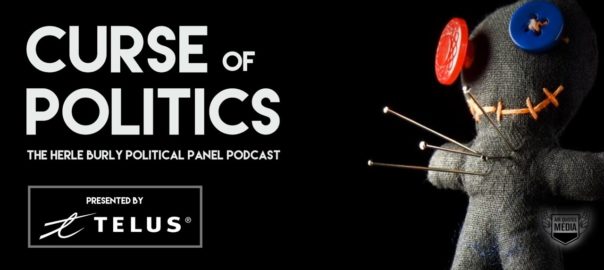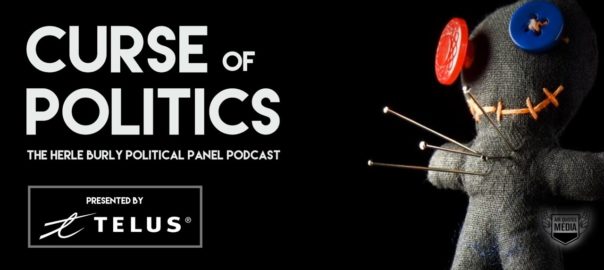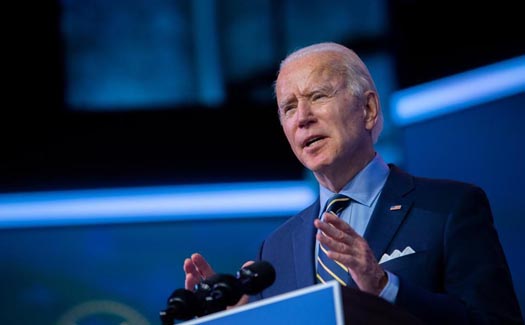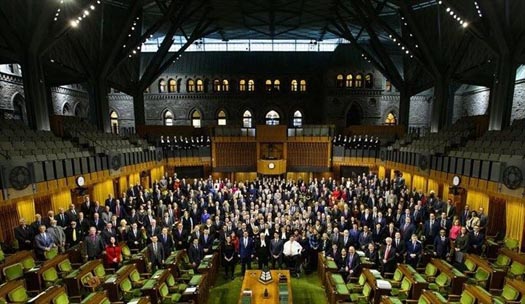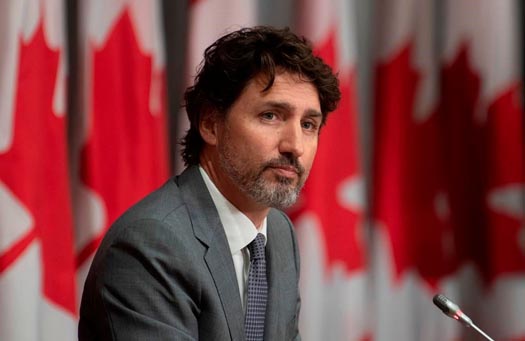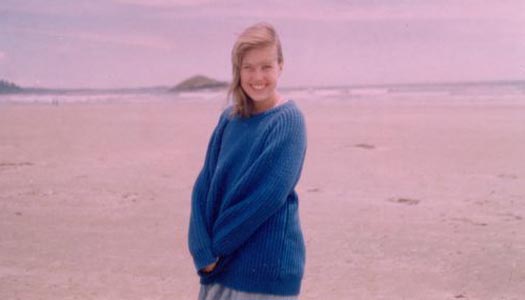
Over the course of the next five weeks, when you turn on your TV to watch the evening news — be it the national news, or a local broadcast — or you go online to read The Globe and Mail or one of the local newspapers, almost inevitably you’ll be presented with a graphic, such as the one above, presenting the latest election “polling results” from one of Canada’s nationally recognized polling companies — EKOS Research, Ipsos-Reid, Forum Research, Quitto Maggi’s Mainstreet Research or, as above, Nanos Research, and you’ll read about or hear intoned the weight and the meaning of the latest election polling results.
VanRamblings is here to tell you don’t for a minute believe any of the results from these national pollsters. Why not? Because, the meaning of that polling serves a number of functions, none of which contribute to your understanding of where the parties stand at any point during the current 36-day election period. Rather the poll results serve as “earned media” for the polling companies (more often than not, the pollsters supply the polling information for free, as “advertising” for the work they do outside of election periods), or more simply as “entertainment” for the viewer, contributing to the notion that there is not an election of import going on addressing issues of concern to the electorate, but rather the election is little more than a horse race, a form of political amusement or diversion.
In a story published in The Globe and Mail over the weekend, the paper’s Ottawa bureau chief, Robert Fife, wrote …
“The Liberal Party appears to be losing its momentum and now faces the prospect of eking out another minority government … The poll by Nanos Research, completed Friday, shows the Liberals with only 33.4% voter support, a drop of 5.9 percentage points from four weeks ago when the party appeared headed for a majority government.
“They are not in majority territory any more — and based on our internal seat projections — the hot election speculation has turned off enough voters for the Liberals to go from a majority to putting 40 Liberal [potential] wins at risk,” said Nik Nanos, the polling firm’s founder.”
If you believe that palaver, VanRamblings has a bridge we’d like to sell you.
![]()
![]()
![]()
Public polling has fallen out of favour in recent years, with pollsters in Canada and the United States wildly wrong in their predictions as to the outcome of various elections. Why?
Polling respondents, more often than not, lie to pollsters — who also fail to survey a broad cross-section of the public. Pollsters fail to compensate or adjust their figures factoring in that those members of the electorate under the age of 45 are significantly less likely to turn up at the polling booth, or mail in their ballot, than voters over the age of 45 — but pollsters give these “younger” respondents equal weight in calculating their polling results. As a consequence of their continued failure to accurately account for the intention of the potential electorate, pollsters face an existential crisis, and a disaster for the polling industry and for media outlets and analysts that package and interpret the polls for public consumption.
The polling that counts, and the polling the general public never gets to see is the polling conducted for the two leading parties, in Canada, the Liberals and the Conservatives, each of whom dedicate between five and eleven million dollars of their campaign budgets to paying private internal pollsters who, unlike the 1,000 respondents contacted for the Nanos Research poll above, conduct daily polling in the two hundred or so ridings the two mainstream political parties believe they have chance of winning, contacting between 300 and 500 respondents in each riding every day, as well as conducting in-person demographically diverse research groups in these ridings, among those members of the electorate who are engaged and likely, or almost certain, to vote in the current federal election.
The following “story” illustrates the meaning behind what you read above.

Approximately six months before Premier Christy Clark went to the polls in 2013, B.C. Liberal party campaign manager Mike Macdonald engaged the services of longtime Stephen Harper pollster, Maple Leaf Strategies’ Dimitri Pantazopoulos, one of Canada’s leading strategists and public opinion researchers, with more than 25 years of experience and practical knowledge in providing strategic advice to right and centre-right political parties and their leaders, and renowned for his dogged, thorough and in-depth, and almost invariably accurate, public opinion research studies.
Following in-depth polling in all, then, 84 ridings across British Columbia, approximately one week before the provincial writ was dropped in 2013, Mr. Pantazopoulos advised Ms. Clark and Mr. Macdonald that despite the public polling that had the B.C. Liberal party popularity languishing between 33% & 36% in the “public” polls, with NDP leader Adrian Dix polling in the range of 47% to 51% — and assured of an overwhelming victory and majority government in the coming provincial election5 — in fact, he believed Ms. Clark could secure a majority government, advising Mr. Macdonald to “write off” 34 “unwinnable seats”, and focus on the 50 “winnable” ridings that could secure a victory for Ms. Clark and her B.C. Liberal party.
Although many in the B.C. Liberal party were aghast at the advice Mr. Pantazopoulos provided to Ms. Clark and Mr. Macdonald, both chose to take his advice. Mr. Pantazopoulos and his team conducted in-depth polling nightly in each of the “winnable” 50 ridings, and crafted a message for the candidates in each of those ridings to present to the electorate the next day to address the specific concerns of the electorate in those specific ridings. Long story short, despite the public polling that had the B.C. Liberal party and Ms. Clark going down to flaming defeat, come election night, the B.C. Liberal party secured victory in every one of the fifty ridings that Mr. Pantazopoulos had identified, as Ms. Clark and the B.C. Liberal party went on to form their much cherished majority government.

According to information provided to VanRamblings by informed sources within both the federal Liberal and Conservative parties, pre-election internal polling has the Liberal Party on track to win 200+ seats come the end of the current federal election, with the federal Conservative party hoping to hold onto 99 of their current 121 seats — the details of which VanRamblings will provide in the coming days.
Over the course of the next 35 days, both mainstream federal political parties will conduct daily and nightly polling in the ridings they’ve identified for victory, and craft both a national and a local message for the electorate to respond to concerns that have been identified by internal party pollsters, many of whom will be out door knocking in ridings across Canada.
Of course, there’s still five weeks to go until election day and anything could happen, but despite the $63.5 million the Conservative party has in its kitty to “secure victory” s, as VanRamblings will explain tomorrow, it’s going to be an uphill battle for Conservative party leader Erin O’Toole to hold onto a good portion of their current seats in the House of Commons.
As always, VanRamblings will publish the daily Curse of Politics podcast …
Day One | August 16, 2021 | David Herle, Scott Reid and Jenni Byrne weigh in on Day 1 of the 44th Canadian federal election, joined by Politico Canada’s Nick Taylor-Vaisey.
 David Herle, pollster, and founder of the Air Quotes Media podcast conglomerate.
David Herle, pollster, and founder of the Air Quotes Media podcast conglomerate.
In addition to the daily Curse of Politics podcast, David Herle has also created the new Through the Looking Glass podcast, today’s début episode presenting ‘swing voters’, where rather than focusing, as per usual, on interviewing political figures or insiders, instead the Through the Looking Glass podcast takes viewers through the looking glass of a focus group boardroom, done virtually, and into the minds of everyday people.
Through the Looking Glass: Swing Voters 2021 will meet with a group of swing voters from the greater Vancouver and greater Toronto areas as they form opinions about the federal election. Both of these Canadian metropolitan areas have a surfeit of seats up for grabs, and are home to some of the most competitive ridings in the country.
Through the Looking Glass will check in with this group of swing voters once a week throughout the campaign period to hear what they’re thinking and feeling about the issues that have come to the fore, the leaders of the four main political parties, the party platforms, the debates (upcoming, in English Canada, on Thursday, September 9th), party ads, and ultimately, how they intend to vote as we head into Election Day.
Here’s the début episode of the Through the Looking Glass podcast …
Episode One | August 16, 2021 | The new Air Quotes Media Through the Looking Glass podcast.
